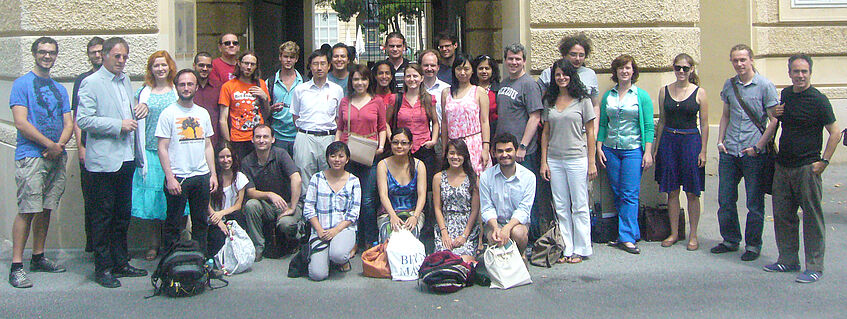USS-SWC 2011 – The Nature of Scientific Evidence
The 11th Vienna Summer University was held on July 4–15, 2011.
Lecturers
- Hasok Chang (University of Cambridge)
- Tal Golan (University of California, San Diego)
- David Lagnado (University College London)
Concern with clear and demonstrable evidence resides at the heart of modern culture and its systems of knowledge. Every well-established group of practitioners seems to have a clear sense of what they count as good evidence, but when we look for a general characterization of evidence and its probative force, answers are difficult to come by. Philosophers, historians, jurists and scientists have all made serious investigations into the nature of evidence. Still, there is neither a widely agreed-upon theory nor a general rule of evidence that applies universally.
In this course we will explore various notions of evidence in various domains of theory and practice. Our program is distinctive in three ways. First, we will provide a broad multi-disciplinary inquiry into the nature of evidence, employing the combined resources of philosophy, psychology and history. Second, we will take a detailed look at the philosophical and historical contexts of various concepts of evidence in science, medicine and law. Third, we will make a sustained effort to link up abstract concepts and questions with concrete practices and moments.
Topics
- Philosophical theories of evidence and their problems
- Cognitive approaches to evidential reasoning
- Causal models in evidential reasoning
- Legal theories of evidence and their evolution
- Probabilistic and statistical handling of evidence
- Evidential reasoning in medicine
- Evidence for public policy and public consumption
- Professionalization, quantification and standardization of evidence
- Evidence, authority and commitment
- Social and moral dimensions of evidence
- Evidence in scientific practice
